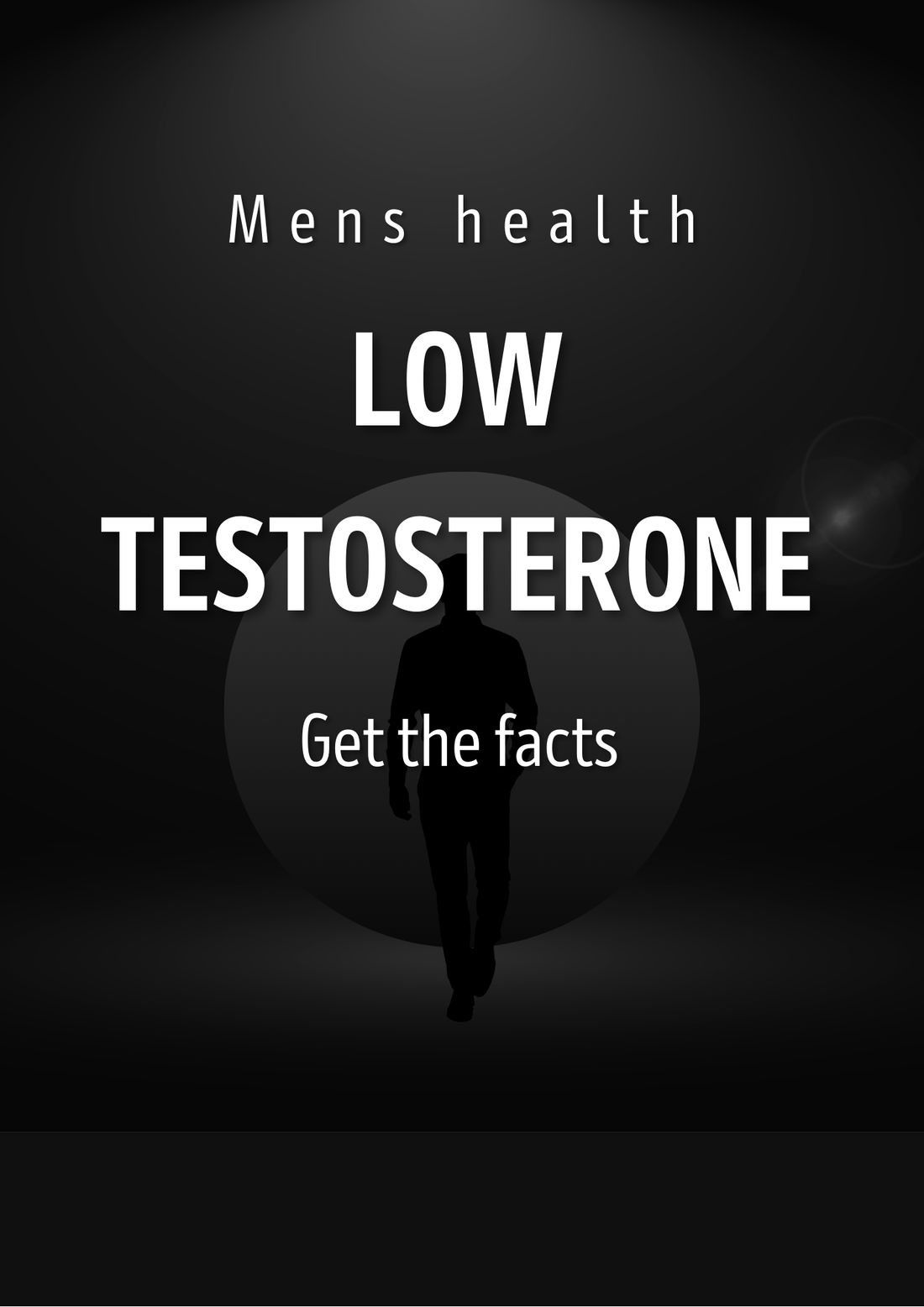When we think of ADHD, we often think of it as a disorder that only affects kids. There are many articles and webpages about kids, and I will link some here. But in this blog, I am going to focus on adults, as the number of adults being diagnosed with ADHD is on the increase.
A article in the Belfast Telegraph in January 2023 stated the following
Northern Ireland’s health and social care trusts are experiencing demand capacity issues for adult ADHD services, with some unable to take any more referrals.
One trust said the rate of annual referrals had risen to almost five times the figures recorded between 2017 and 2020.
In a letter to a GP, the Northern Trust (NHSCT) said their referral rate had jumped from 125-140 per year to around 400-500 per year.

So, I'm not going to specifically focus on medication and other treatments, I will link them. What I mainly get asked by adults is, 'Could I have ADHD or ADD, and how do I get diagnosed? So I'm going to focus on this.
And I'll be honest, when I started researching this, I was quite shocked at how difficult it is to navigate the diagnosis system. But I'll come back to that.
So to begin, with more and more adults are being tested for the condition what exactly is ADHD?
Attention deficit hyperactivity disorder (ADHD) is a condition that affects people's behaviour. People with ADHD can seem restless, may have trouble concentrating and may act on impulse/hyperactivity. Some people may not have symptoms of hyperactivity but just trouble concentrating. This is called ADD, Attention Deficit Disorder.
Symptoms of ADHD tend to be noticed at an early age and may become more noticeable when a child's circumstances change, such as when they start school.
Most cases are diagnosed when children are under 12 years old, but sometimes it's diagnosed later in childhood.
Sometimes ADHD was not recognised when someone was a child, and they are diagnosed later as an adult.
The symptoms of ADHD usually improve with age, but many adults who were diagnosed with the condition at a young age continue to experience problems.
People with ADHD may also have additional problems, such as sleep and anxiety disorders.

What kind of Disorder is ADHD?
ADHD is a ‘neurodevelopmental disorder’. These are disorders that can affect lots of different brain functions, including learning, communication, movement, emotions and attention.
Neurodevelopmental disorders start in childhood and for many people are life-long. This means that they can’t be ‘cured’. Instead, people with neurodevelopmental disorders can benefit from support and changes to their environment.
People who have one neurodevelopmental disorder are more likely to have another one, such as:
- autism spectrum disorder
- coordination difficulties
- speech, language and communication disorders
- Tourette’s syndrome
- dyslexia
- dyscalculia.
If someone has ADHD that isn’t recognised or treated properly, this can negatively affect their mental and physical wellbeing.
What causes attention deficit hyperactivity disorder (ADHD)?
The exact cause of ADHD is unknown, but the condition has been shown to run in families.
Research has also identified a number of possible differences in the brains of people with ADHD when compared with those without the condition.
Other factors suggested as potentially having a role in ADHD include:
- being born prematurely (before the 37th week of pregnancy)
- having a low birthweight
- smoking or alcohol or drug abuse during pregnancy
ADHD can occur in people of any intellectual ability, although it's more common in people with learning difficulties.
How Common is ADHD in adults?
ADHD affects about 3 to 4 in every 100 adults. People with ADHD can be of any background, but ADHD is more common in people who have:
- a sibling or close family member with ADHD
- epilepsy
- other neurodevelopmental conditions, learning disabilities or learning difficulties
- mental illnesses
- a history of alcohol or drug misuse
- been involved in the criminal justice system
- an acquired brain injury
- been in care
Or who were:
- born prematurely
- diagnosed with ‘oppositional defiant disorder’ or ‘conduct disorder’ as children
- thought to have a mental illness like anxiety or depression as children.
ADHD is more commonly diagnosed in boys than in girls. However, in adults the diagnosis of ADHD in men and women is more equal. This might be because, as children, boys are more likely to show hyperactive and impulsive symptoms, which are more noticeable.
When it comes to diagnosis, girls and women might be more likely to:
- have undiagnosed ADHD
- not be referred for assessment for ADHD
- receive an incorrect diagnosis of another mental health or neurodevelopmental condition.
How do I know if I have ADHD/ADD
Below is a list of the core symptoms of ADHD. For someone to be diagnosed with ADHD, these symptoms need to cause significant difficulties in at least two areas of daily life. For example, home, education or employment, relationships and housing. Generally its accepted you need 5 or more symptoms across 2 areas of your life to have ADHD or ADD.
There are lots of other experiences that people with ADHD report having that might not be covered here. I have included examples that cover a broad range of ages, from young people who are still in education, to people who are in the workplace.
| Inattention | Hyperactivity and impulsivity |
|---|---|
| Lack of attention to detail | Fidgeting or tapping hands or feet, squirming in seat |
| Struggling to focus on tasks or activities | Leaving your seat in situations when remaining seated is expected |
| Struggling to listen when spoken to directly | Feeling restless and having a lot of energy |
| Not following instructions, and failing to finish work, chores or other duties | Difficulties playing or taking part in leisure activities quietly |
| Trouble organising tasks and activities | Talking excessively |
| Avoiding or disliking tasks that require mental effort over a long period of time (such as schoolwork, homework or housework) | Blurting out an answer before a question has been completed |
| Losing important things (e.g. school materials, pencils, books, tools, wallets, keys, paperwork, glasses, mobiles) | Struggling to wait your turn |
| Getting easily distracted | Interrupting or intruding on others |
| Being forgetful | |
|
Making mistakes at school or work, or in other activities
|
Not all of these symptoms will be obvious to others. People with ADHD will often develop ways to hide their symptoms, and doing so can be very exhausting and negatively affect their mental health.
How is ADHD diagnosed?
You might have used a questionnaire or quiz to find out whether you have ADHD. Questionnaires can help with the assessment process (I'll link one below) but ADHD can only be accurately diagnosed with:
- a comprehensive interview
- a consultation-based assessment
These reviews are not carried out by your local doctor. They must be carried out by a specialist in this area - for example, a psychiatrist.
NICE (the National Institute for Health and Care Excellence) have guidelines for diagnosing ADHD. Regardless of where you are in the country, your assessment should follow these guidelines.
A thorough assessment report would include, at least, all of the following:
- the role, qualifications, and experience of the person assessing you
- discussion of your ADHD symptoms and whether these meet the criteria for a diagnosis. This is usually supported by structured assessment tools and questionnaires
- a full review of your mental health
- information about your childhood, development, schooling, and your ability to function in areas of daily living (this is important - it is deemed you cannot have ADHD as an adult, unless you had it as a child.
- reviewing any physical health problems
- information about you from others who know you, especially how you were as a child, if available

Diagnosing ADHD in adults is more difficult because there's some disagreement about whether the list of symptoms used to diagnose children and teenagers also applies to adults.
In some cases, an adult may be diagnosed with ADHD if they have 5 or more of the symptoms of inattentiveness, or 5 or more of hyperactivity and impulsiveness, listed in diagnostic criteria for children with ADHD.
If you find it difficult to remember whether you had problems as a child, your specialist may wish to see your old school records, or talk to your parents, teachers or anyone else who knew you well when you were a child.
For an adult to be diagnosed with ADHD, their symptoms should also have a moderate effect on different areas of their life, such as:
- underachieving at work or in education
- driving dangerously
- difficulty making or keeping friends
- difficulty in relationships with partners
If your problems are recent and did not occur regularly in the past, you're not considered to have ADHD. This is because it's currently thought that ADHD cannot develop for the first time in adults.
What should I do if I'm an adult and I think I have ADHD?
I've linked a website here. ADHD UK - Homepage - ADHD UK
If you believe you may have ADHD or ADD, you could do the questionnaire on this website to alleviate or confirm your fears.
Now, it is not definitive in anyway, and will not be used to make a formal diagnosis - PLEASE don't go into your GP and tell them you read my blog, you did the questionnaire, now you have ADHD, and you want treatment asap!!!!
The questionnaire could rule in or out ADHD or ADD as the cause of your symptoms, and could be part of a conversation with you and your GP, especially if your answers are strongly indicating you have ADHD.
What happens next will depend on your conversation with your GP. The website will also cover this. But if your GP believes you may have ADHD, or needs a second opinion, they will refer you to a psychiatrist, or someone specialising in ADHD. This expert will do a more comprehensive questionnaire with you, establish your childhood history, mental health history and other parameters as set down by NICE Guidance.
Now the services within each trust area across Northern Ireland differ. Some trusts are setting up specialist ADHD clinics for public access and doing pilot projects to see how they run. The trust Melvin Pharmacy is part of (Western Trust), does not have a specialist ADHD clinic, and your GP will refer you to adult mental health services, and they will put you on their waiting list. You will still be assessed by a specialist in ADHD, but the waiting times may be longer.
Many people opt to go privately for their ADHD assessment. If you choose to do this, there are a few important pieces of information you should bear in mind
Private assessments
In addition to NHS services there are many providers who offer ADHD assessments privately.
If you have an assessment elsewhere, specialist NHS Adult ADHD services will check that your report includes all of the detail above before accepting you into the NHS service. This is because prescribers of ADHD medication need to ensure that they have all information required to prescribe safely, and for the right condition.
For this reason, before getting an assessment from an alternative provider you should make sure that it will be accepted by your local NHS service. So check with your GP, if you go privately, will they be able to act on the psychiatrists findings.
How attention deficit hyperactivity disorder (ADHD) is treated
For children with ADHD, although there's no cure, it can be managed with appropriate educational support, advice and support for parents and affected children, alongside medicine, if necessary.
For adults with ADHD, medicine is often the first treatment offered, although psychological therapies such as cognitive behavioural therapy (CBT) may also help.
Here is a link to medical and non medical treatment Attention deficit hyperactivity disorder (ADHD) - Treatment - NHS (www.nhs.uk)
How can I help myself as an adult with ADHD/ADD?
There are a number of things that people with ADHD can do to support their overall health and wellbeing.
1. Tell the people around you how they can help
As with any health condition, people often want to help but don’t know how, and end up giving unhelpful advice. Tell the people in your life about the things you do and don’t find helpful.
2. Try to get some regular exercise
Regular exercise is good for everyone. In people with ADHD, it has been shown to significantly reduce symptoms related to anxiety and depression, which can make ADHD symptoms worse. Exercise has not been shown to have a positive impact on hyperactive, impulsive, or inattentive symptoms.
3. Get enough good-quality sleep
Not sleeping well can make ADHD symptoms worse. Developing good sleeping habits can be challenging, but there are some things you can try:
- Develop and maintain a comforting bedtime routine, e.g. having a bath, listening to music.
- Go to bed and get up at the same time each day, including at weekends.
- Avoid screen time for at least an hour before bedtime.
- Do not consume sugar, caffeine or alcohol within a couple of hours of bedtime.
- Get enough exercise during the day.
- Keep the bedroom dark and quiet. If you can, leave a window open for fresh air.
4. Aim for a regular and balanced diet
A large study has shown that there is a relationship between inattentive symptoms and unhealthy eating habits, including eating foods high in added sugar. An unhealthy diet negatively impacts physical health and possibly mood, which could make it more difficult to manage ADHD symptoms.
5. Driving
By law you must tell the Driver and Vehicle Licensing Agency (DVLA) about any condition that may affect your ability to drive safely.
If you’re not sure if your ADHD, or your ADHD medication affects your ability to drive safely, speak to your doctor. If ADHD does affect your driving and you do not tell the DVLA, you can be fined up to £1,000. If you’re involved in an accident you may be prosecuted.
You can find out more about this on the DVLA website.
I hope you have found this useful. There is so much information here, but take your time digesting it.
I think from doing research, the system is difficult to navigate, especially if you are an ADHD suffer. You have to go to your GP, be referred to mental health/ specialist in this area, attend several appointments, get a diagnosis, start medication, attend counselling and live your life...all against a background of ADHD/ADD. There has to be an easier way, or a one stop shop where you can have all this done in a streamlined approach.
Please let me know if you found this blog useful
Siobhan xxxxx
www.rcpsych.ac.uk Royal College of Psychiatrists
Attention deficit hyperactivity disorder (ADHD) - Diagnosis - NHS (www.nhs.uk)





